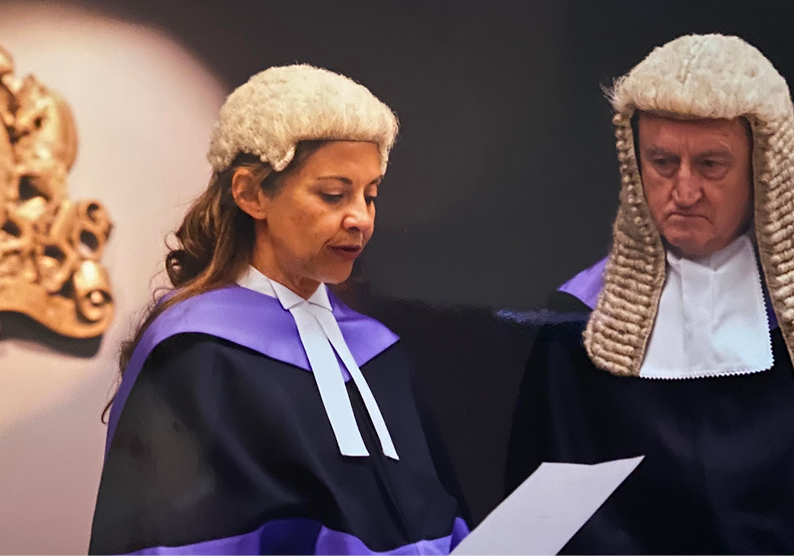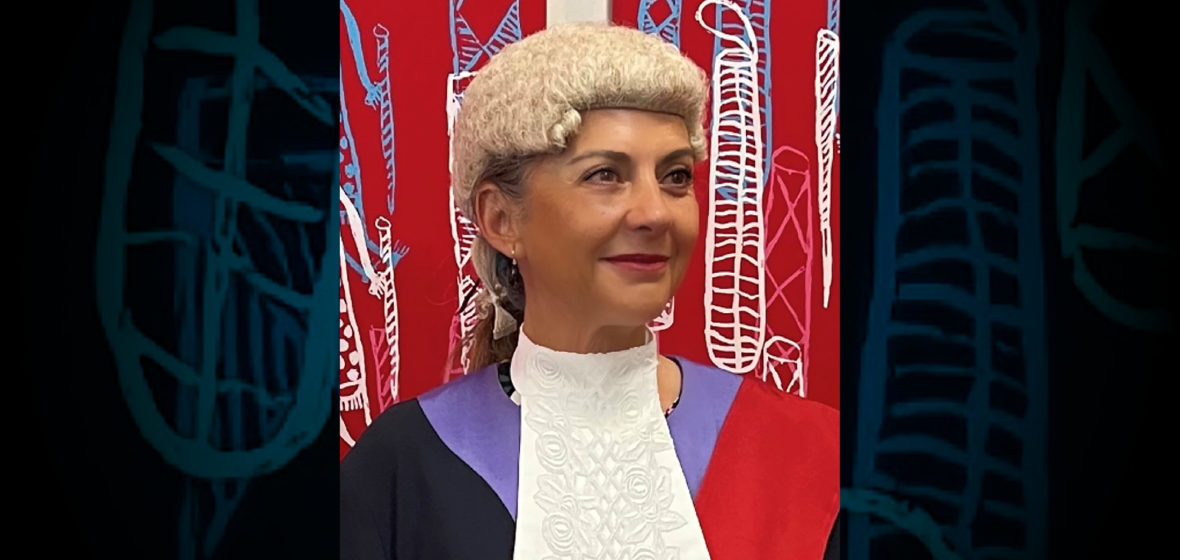The Walama List, aimed at reducing high rates of Indigenous incarceration and reoffending, has been marked with an official ceremonial sitting in the NSW District Court.
The List, which began as a pilot at Sydney’s Downing Centre earlier this year, hopes to drive down recidivism and provide Indigenous offenders with a more culturally specific and holistic approach to sentencing by bringing Indigenous elders and community members into discussions with the courtroom judge.
It’s the first time the NSW District Court will have an Indigenous sentencing list. It was acknowledged formally on Monday at John Maddison Tower in Sydney. Walama List elders were in attendance along with distinguished guests including Chief Judge Derek Price, Chief Justice Andrew Bell, NSW Attorney General Mark Speakman, President of the Law Society of NSW Joanne van der Plaat, and President of the Bar Association Michael McHugh.
The Walama List takes its name from the Dharug word for “come back” and will be headed up by District Court Judge Dina Yehia SC, who told the Court “it is an ambitious task, but a hopeful start”.
Judge Yehia said the List hopes to increase the rate of compliance with court orders to make communities safer and increase the confidence amongst First Nations peoples in the criminal justice system.
“This is a momentous occasion in the history of the NSW District Court,” Judge Yehia said.
“As judicial officers, we are too often faced with the negative aspects of the life of an Indigenous person; their trauma, disadvantage and deprivation. That material is both important and necessary.
“What we lose sight of however is the strength and resilience in community. We lose sight of the fact that culture is powerfully healing. We forget the experience, wisdom and knowledge of elders and other community members can inform our decision making and assist us in formulating the appropriate penalty.”

The program was recommended by the NSW Select Committee Report on First Nations People in Custody on the 30-year anniversary of the 1991 Royal Commission into Aboriginal Deaths in Custody.
Among 39 recommendations within its report, the committee advised the government to fund the establishment of a Walama Court in the District Court. The legal profession and criminal justice bodies, including the Law Society of NSW, Law Council of Australia and the Police Association of NSW, have long supported the idea.
Aboriginal or Torres Strait Islander offenders due to be sentenced will be eligible if they have pleaded guilty, signed an agreed statement of facts and consent to be dealt with in the Walama List.
Walama borrows concepts from circle sentencing and draws on the idea of therapeutic intervention concepts from the successfully-evaluated Drug Court.
Speaking at the Ceremonial Sitting, Speakman said while Aboriginal people represent three per cent of the state’s population, they represent 27 per cent of the adult prison population. In the December quarter across Australia, one in 23 adult Aboriginal men were in prison.
Speakman also referenced the 2021 Bureau of Crime Statistics and Research (BOCSAR) report that found Aboriginal defendants are 20 per cent more likely to be refused bail by police.
The Attorney General noted these disproportionate statistics to highlight the need for change within the criminal justice system.
“At the moment, [the Walama List] is not a legislative permanent court. But I hope it becomes one,” Speakman said.
“At the moment, we can’t be certain that it will work. But we can be certain that it’s the right thing to do. Business as usual will not reduce Aboriginal overrepresentation in our criminal justice system.”




